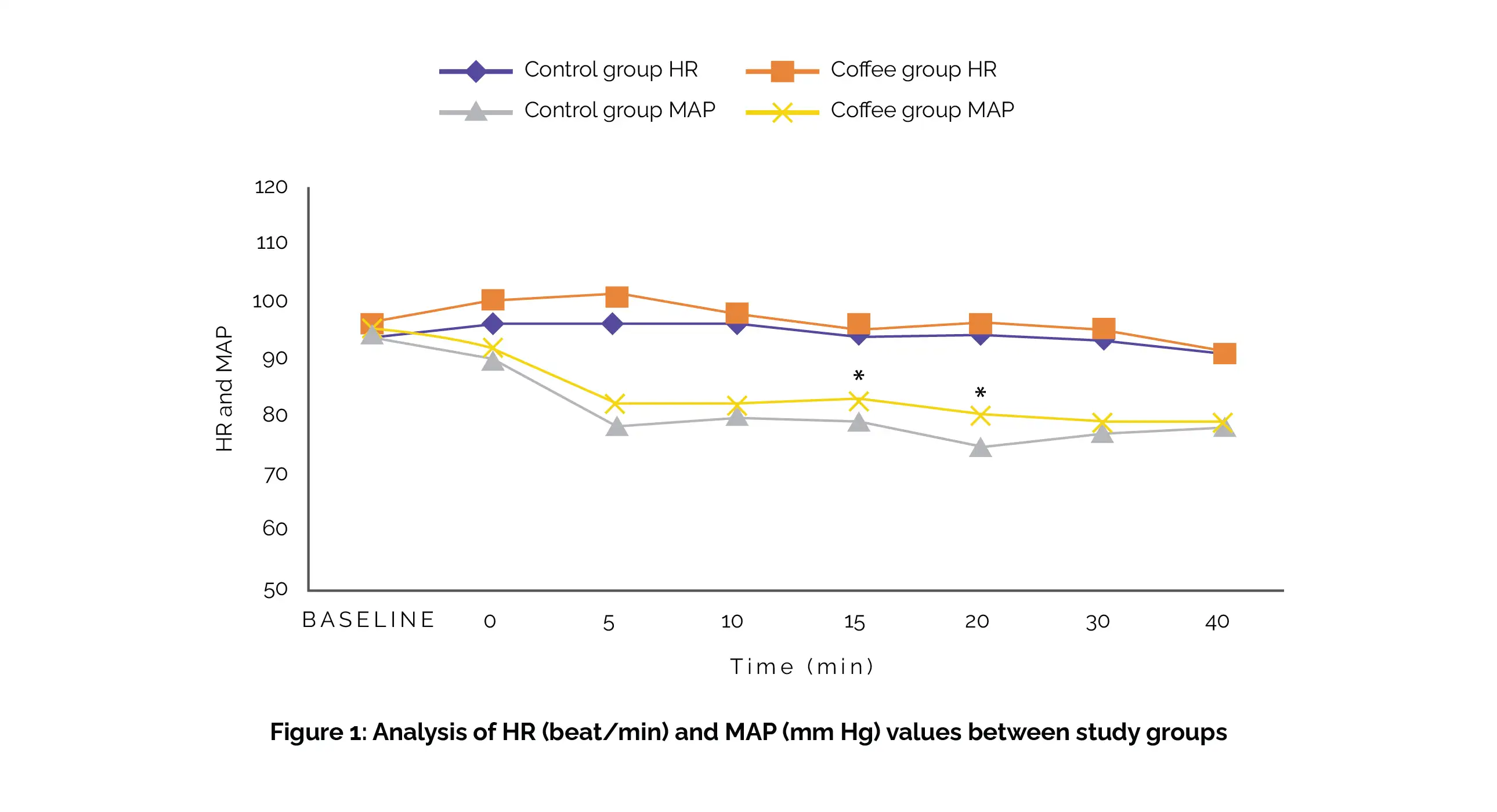Categories
Change Password!
Reset Password!


Preoperative coffee use may reduce post-spinal hypotension, nausea, vomiting, and ephedrine use. It also lowers the occurrence of post-dural puncture headache within the first 24 hours post-surgery.
In a recent non-randomized clinical trial, drinking one cup of coffee prior to spinal anesthesia lowered the risk of intraoperative hypotension and attenuated the need for ephedrine during cesarean section. The aim of the study was to check whether drinking coffee before surgery can prevent low blood pressure during C-section. The research comprised 140 women undergoing elective cesarean section delivery via spinal anesthesia.
The enrolled participants were not given any premedication. The coffee group (n=70) consisted of participants who had a single cup of filtered coffee without sugar two hours before spinal anesthesia; the control group (n=70) consisted of participants who drank water. Following spinal anesthesia, haemodynamic measures were measured every three to five minutes. Ephedrine use during surgery was noted. The post-dural puncture headache (PDPH) was observed for three days.
The study excluded patients with coffee or caffeine allergies, known cardiovascular, cerebrovascular, neurological, neurodegenerative, psychiatric, diabetes mellitus, liver disease, pre-eclampsia-eclampsia, or multiple pregnancies, and those who consumed three or more cups of coffee daily. The study found that oral intake of coffee before surgery can reduce post-spinal hypotension without side effects or complications. This is due to sympathetic activation, intervened by phosphodiesterase inhibition, rise in cytosolic calcium, and stimulation of noradrenaline/adrenaline release, which effectively prevents post-spinal hypotension development.
In the coffee group, the occurrence of intraoperative low blood pressure was 48.6%, while in the control group, it was 71.4% (p = 0.006). Heart rate (HR) values were similar across groups (p > 0.05), but mean arterial pressure (MAP) was considerably higher in the coffee group at 15 and 20 minutes (p = 0.037 and p = 0.008), as shown in Figure 1:

In the coffee group, there was a considerably reduced rate of ephedrine consumption (25.7%) (p = 0.001). The coffee group also exhibited a substantially decreased incidence of PDPH in the first 24 hours (2.9%) compared to the other groups (11.4%). The visual analogue scale (VAS) scores were similar between groups (p = 0.048, p > 0.05). Coffee consumption is non-invasive and cost-effective. It can be used without side effects, making it a promising technique for clinical application, especially considering the potential risks to the fetus, and without making the patient feel like they are taking medication.
Cureus
Does Preoperative Coffee Consumption Prevent Intraoperative Hypotension in Cesarean Section Surgeries?
Gamze Talih et al.
Comments (0)